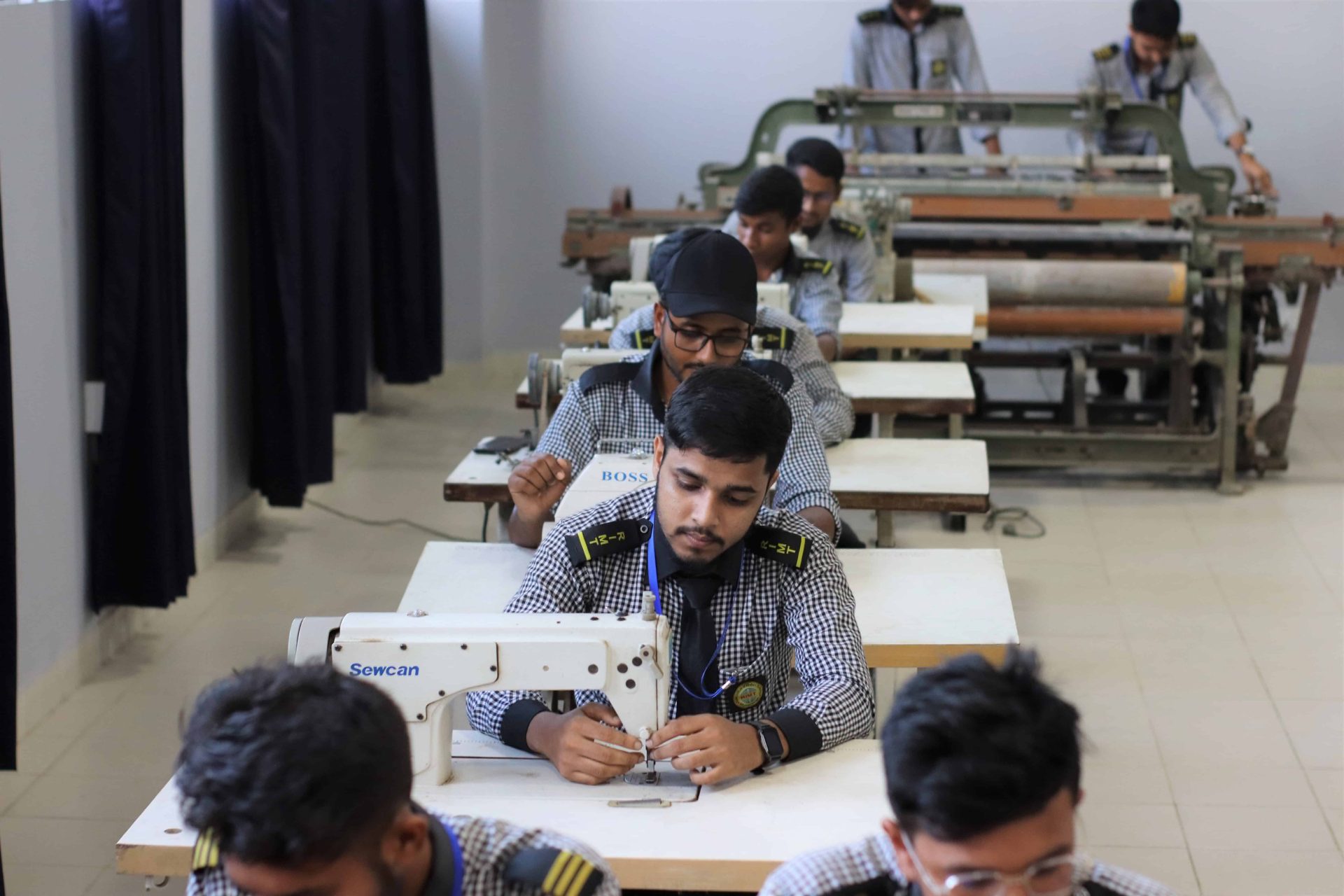Departments


Students are advice to collect admission form the admission office.
To confirm the admission, students must submit
4 copy of recent PP size photo
Main copy of SSC transcript
Photocopy of Parent’s NID Card.
Along with the properly filled admission form.
NOTE: Students will be admitted for the limited seats.
Students are advice to collect admission form the admission office.
To confirm the admission, students must submit
4 copy of recent PP size photo
Main copy of SSC transcript
Photocopy of Parent’s NID Card.
Along with the properly filled admission form.
NOTE: Students will be admitted for the limited seats.
Drawing Lab
Civil Testing & Plumbing Lab
Surveying Lab
CAD & Graphics Lab
Electrical Circuit & Measurement Lab
Physics Lab
Chemistry Lab
Students are advice to collect admission form the admission office.
To confirm the admission, students must submit
4 copy of recent PP size photo
Main copy of SSC transcript
Photocopy of Parent’s NID Card.
Along with the properly filled admission form.
NOTE: Students will be admitted for the limited seats.
Students are advice to collect admission form the admission office.
To confirm the admission, students must submit
4 copy of recent PP size photo
Main copy of SSC transcript
Photocopy of Parent’s NID Card.
Along with the properly filled admission form.
NOTE: Students will be admitted for the limited seats.
A four years long Diploma in Electronics Engineering is highly valued today, among the young generation for its work/job-oriented approaches, syllabuses. After completing SSC, a student can join in this course and receive the status of a Diploma Engineer, from where they can enter the job field so easily. Electronics engineers are instrumental in revolutionizing the lives of modern man. They are required by the industries manufacturing all the household and office appliances like Mobile Phone ,PLC Televisions, computers, microwaves and what not. In our age of satellite-transmitted television and transcontinental computer networks, these engineers are high in demand.
Electronics engineers also find employment in as well as thermal power plants. Job responsibilities include specification, design, development, and implementation of products or systems, as well as research to create new ideas.
Students are advice to collect admission form the admission office.
To confirm the admission, students must submit
4 copy of recent PP size photo
Main copy of SSC transcript
Photocopy of Parent’s NID Card.
Along with the properly filled admission form.
NOTE: Students will be admitted for the limited seats.
The career path in wet processing engineering can vary depending on individual interests, skills, and opportunities. Here is a general career path that individuals in wet processing engineering might follow:
Students are advice to collect admission form the admission office.
To confirm the admission, students must submit
4 copy of recent PP size photo
Main copy of SSC transcript
Photocopy of Parent’s NID Card.
Along with the properly filled admission form.
NOTE: Students will be admitted for the limited seats.
Textile Machine Lab
Textile Testing Lab
Garments & Fashion Lab
Chemistry Lab
Physics lab
Garments CAD & CAM Lab
2. Production Coordinator or Supervisor:
With some experience, individuals may progress to roles such as production coordinator or supervisor. In these positions, they may be responsible for coordinating production activities, managing production teams, and ensuring that production schedules are met.
3. Quality Assurance Specialist: Some graduates may choose to specialize in quality assurance and move into roles such as quality control inspector, quality assurance coordinator, or quality technician.
Students are advice to collect admission form the admission office.
To confirm the admission, students must submit
4 copy of recent PP size photo
Main copy of SSC transcript
Photocopy of Parent’s NID Card.
Along with the properly filled admission form.
NOTE: Students will be admitted for the limited seats.
Textile Machine Lab
Textile Testing Lab
Garments & Fashion Lab
Chemistry Lab
Physics lab
Garments CAD & CAM Lab
Students are advice to collect admission form the admission office.
To confirm the admission, students must submit
4 copy of recent PP size photo
Main copy of SSC transcript
Photocopy of Parent’s NID Card.
Along with the properly filled admission form.
NOTE: Students will be admitted for the limited seats.
Textile Machine Lab
Textile Testing Lab
Garments & Fashion Lab
Chemistry Lab
Physics lab
Garments CAD & CAM Lab